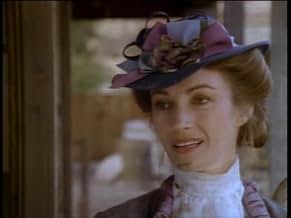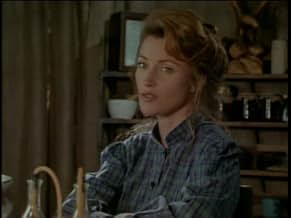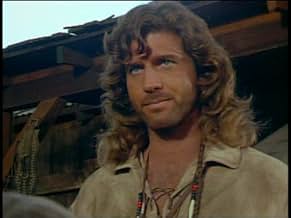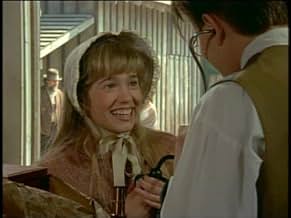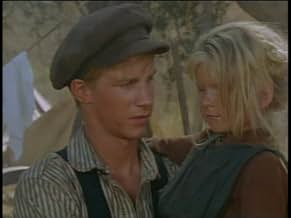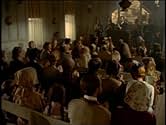The trials and adventures of a female doctor in a small Wild West town.The trials and adventures of a female doctor in a small Wild West town.The trials and adventures of a female doctor in a small Wild West town.
- Won 4 Primetime Emmys
- 20 wins & 45 nominations total
Browse episodes
Storyline
Did you know
- TriviaIn a 2015 feature on National Public Radio, Jane Seymour said that although she eventually came to think of "Dr. Quinn" as one of the projects she is most proud of in her career, she originally signed her contract for it (including both the TV-movie/pilot and a five-year series commitment) with only one night's notice--not because she had any particular interest in the show but because she had just discovered that her then husband/business manager had lost all her money and gotten her $9 million in debt. She had told her agent that to avoid losing her house and to protect her two young children, she would do any TV project available no matter what it was, and Dr. Quinn was the first one offered to her.
- GoofsMr. Bray's store doors change from having windows to solid wood and back to having windows.
- Quotes
Byron Sully: Someone's wife is pretty mad.
Dr. Michaela 'Mike' Quinn: My goodness, she's angry. I feel sorry for the poor fellow. Whose teepee is it?
Cloud Dancing: Mine.
- ConnectionsFeatured in The 45th Annual Primetime Emmy Awards (1993)
Featured review
I am really taken aback that the only comment I see so far for this excellent show is entirely negative and dismissive. I feel compelled to set the record straight. The commentator dismisses the show for, among other things, anachronistic historical inaccuracy, as well as politically correct emotional sterility.
That is ridiculous. This was a wonderful show. The episodes were certainly not all the same. It dealt with many issues that are politically and socially relevant. It presented emotionally gripping drama, with different points of view, especially including compassionate consideration of the plight of native American people. It reminded me very much of the show Kung Fu, which is set during the same period in American history, the 1870s, and also had similar themes of pacifism, labor militancy, feminism, the plight of native Americans as well as the Chinese immigrants. (In actuality, David Carradine himself, a good friend of the Director and Seymour's husband, James Keatch (brother to Stacy Keatch, who appeared in one episode as President Ulysses Grant), appears in one of the episodes. The Keatches and the Carradines go back at least to the time when both families did the movie on the Younger-James gang.)
This show won an AWARD from the Smithosonian institution, hardly a left-wing bastion of political correctness, for its portrayal of the massacre of the Cheyenne at Washita. Its portrayal of the history of the persecution and genocide of the native Americans, by such notorious b******s as Chivington and Custer, was meticulously researched. Its show on Walt Whitman is a case in point as a study of actual attitudes, scientific as well as popular, toward homosexuality, during this period.
The show presented well the CENTRAL cultural conflict in American history, as portrayed by such authors as Leslie Fiedling (LOVE AND DEATH IN THE AMERICAN NOVEL) and Richard Slotkin (RESURRECTION THROUGH VIOLENCE): between the murderous drive to conquer nature and exterminate the "Reds," vs. those, like Dr. Quinn, Sully, and their family, who seek, then as now, to make peace with their fellow human beings and the natural environment.
The show emphasized the value of an emotionally, politically, and socially complex community, with its racial and ethnic hierarchies which Doctor Quinn continually challenged, and its emotional intimacies among men and women. Absolutely historically accurate!
Last but certainly not least, the romantic aspects of the show: the growing romance between Dr. Quinn and Byron Sully, her adopted son Matthew and first Ingrid, and then the prostitute (what was her name?), and between her daughter. Caroline, and the Doctor, Andrew, were great: as was the portrayal of Matthew's coming of age as first the non-violent sheriff of the town, and then as a budding attorney.
Please, if you have never seen this show before, do not be dissuaded by the previous commentator. Check it out-you'll be doing yourself a big favor. This is one of the best shows ever made for television!
That is ridiculous. This was a wonderful show. The episodes were certainly not all the same. It dealt with many issues that are politically and socially relevant. It presented emotionally gripping drama, with different points of view, especially including compassionate consideration of the plight of native American people. It reminded me very much of the show Kung Fu, which is set during the same period in American history, the 1870s, and also had similar themes of pacifism, labor militancy, feminism, the plight of native Americans as well as the Chinese immigrants. (In actuality, David Carradine himself, a good friend of the Director and Seymour's husband, James Keatch (brother to Stacy Keatch, who appeared in one episode as President Ulysses Grant), appears in one of the episodes. The Keatches and the Carradines go back at least to the time when both families did the movie on the Younger-James gang.)
This show won an AWARD from the Smithosonian institution, hardly a left-wing bastion of political correctness, for its portrayal of the massacre of the Cheyenne at Washita. Its portrayal of the history of the persecution and genocide of the native Americans, by such notorious b******s as Chivington and Custer, was meticulously researched. Its show on Walt Whitman is a case in point as a study of actual attitudes, scientific as well as popular, toward homosexuality, during this period.
The show presented well the CENTRAL cultural conflict in American history, as portrayed by such authors as Leslie Fiedling (LOVE AND DEATH IN THE AMERICAN NOVEL) and Richard Slotkin (RESURRECTION THROUGH VIOLENCE): between the murderous drive to conquer nature and exterminate the "Reds," vs. those, like Dr. Quinn, Sully, and their family, who seek, then as now, to make peace with their fellow human beings and the natural environment.
The show emphasized the value of an emotionally, politically, and socially complex community, with its racial and ethnic hierarchies which Doctor Quinn continually challenged, and its emotional intimacies among men and women. Absolutely historically accurate!
Last but certainly not least, the romantic aspects of the show: the growing romance between Dr. Quinn and Byron Sully, her adopted son Matthew and first Ingrid, and then the prostitute (what was her name?), and between her daughter. Caroline, and the Doctor, Andrew, were great: as was the portrayal of Matthew's coming of age as first the non-violent sheriff of the town, and then as a budding attorney.
Please, if you have never seen this show before, do not be dissuaded by the previous commentator. Check it out-you'll be doing yourself a big favor. This is one of the best shows ever made for television!
Details
- Release date
- Country of origin
- Official sites
- Language
- Also known as
- Dr. Quinn
- Filming locations
- Production companies
- See more company credits at IMDbPro
Contribute to this page
Suggest an edit or add missing content

Top Gap
By what name was Dr. Quinn, Medicine Woman (1993) officially released in India in English?
Answer






